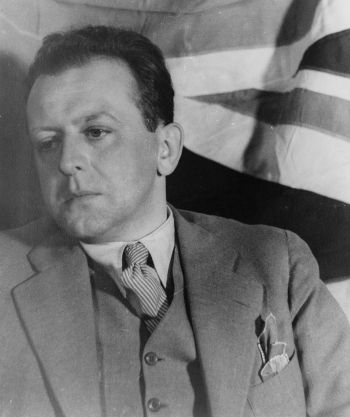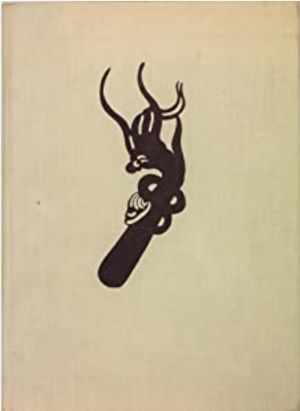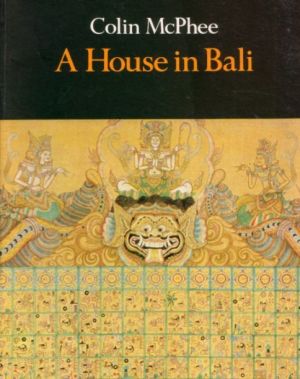On February 15, 1900, Collin McPhee was born in Montreal, Quebec, Canada. He passed away on January 7, 1964, in Los Angeles, California, USA. He was a writer, pianist, and composer who composed music for traditional Balinese dances. He was a resident of Bali. In addition, he writes a lot of music inspired by Balinese traditional music.
For the remainder of his life, Collin McPhee studied Balinese music. He made a significant contribution to the advancement of Balinese music as well. He brought Balinese music to the attention of various American music universities. The orchestral percussion piece he composed for Carlos Chavez's 1936 summer tour to Mexico is his most well-known composition. Balinese gongs and cymbals are among the musical instruments used in McPhee's percussion piece.
Balinese Ceremonial Music (1934), Concerto for piano and wind octet (1928), Concerto for wind orchestra (1960), Kambing Slem (1960) for flute and piano, Lagoe Sesoeloelingan Ardja (1960) for flute and piano, Lagu Délem (1960), Tabuh-tabuhan (1936) for two pianos and orchestra, Tabuh-Tabuhan, toccata for orchestra (1936), Transitions for orchestra (1954), etc. are some of Collin McPhee's compositions.
Collin McPhee embasEnglishbornIndonesianlahir
EnglishdeadIndonesiannyawa
EnglishcalendarIndonesian-
Englishgod, kind of aIndonesiandia
EnglishborrowIndonesianpinjam
EnglishveryIndonesiansangat
EnglishliveIndonesiandiam
EnglishbaliIndonesianbali
EnglishwriteIndonesianmenulis
EnglishbambooIndonesianbuku
EnglishaboutIndonesianperihal
EnglishalsoIndonesianjuga
EnglishdoIndonesianmengerjakan
Collin McPhee nelasangEnglishcompleteIndonesian-
EnglishopportunityIndonesianwaktu
Englishto investigateIndonesianmenyelidiki
EnglishaboutIndonesianperihal
EnglishbaliIndonesianbali
EnglishalsoIndonesianjuga
EnglishputIndonesianmeletakkan
EnglishsomeIndonesianbeberapa
EnglishworkIndonesiankerja
EnglishveryIndonesiansangat
EnglishfirstIndonesianpaling
EnglishfamiliarIndonesianterkenal
EnglishseasonIndonesianmusim
EnglishhotIndonesianpanas
EnglishyearIndonesiantahun
Englishby means ofIndonesianoleh
Englishlike thisIndonesianbegini
EnglishwithIndonesianoleh
Englishtool, kind ofIndonesianalat
Englishgamelan instrumentIndonesiangong
Karya-karya Collin McPhee, minakadiEnglish-Indonesianterutama
EnglishgoatIndonesiankambing
EnglishcharacterIndonesiantabiat
EnglishveryIndonesiansangat
EnglishbesidesIndonesianlain
Collin McPhee lahir di Montreal, Quebec, Canada, 15 Februari 1900. Ia meninggal di Los Angeles, California, Amerika, pada 7 Januari 1964. Ia adalah seorang komposer, pianis, dan penulis yang pernah menetap di Bali dan menulis buku tentang musik tradisional Bali. Ia juga banyak membuat komposisi musik berdasarkan musik tradisional Bali.
Collin McPhee menghabiskan sisa hidupnya meneliti musik Bali. Ia juga berkontribusi cukup besar bagi perkembangan musik Bali. Ia memperkenalkan musik Bali ke beberapa universitas musik di Amerika. Karyanya yang paling terkenal adalah orkestra Tabuh-tabuhan yang dipentaskan selama perjalanan musim panas ke Meksiko tahun 1936 oleh Carlos Chavez. Tabuh-tabuhan gubahan McPhee ini terdiri dari beberapa alat musik termasuk gong dan simbal khas Bali.
Karya-karya Collin McPhee, antara lain Balinese Ceremonial Music (1934), Concerto for piano & wind octet (1928), Concerto for wind orchestra (1960), Kambing Slem, for flute & piano (1960), Lagoe Sesoeloelingan Ardja, for flute & piano (1960), Lagu Délem (1960), Tabuh-tabuhan, for 2 pianos & orchestra (1936), Tabuh-Tabuhan, toccata for orchestra (1936), Transitions for orchestra (1954), dll.









Enable comment auto-refresher